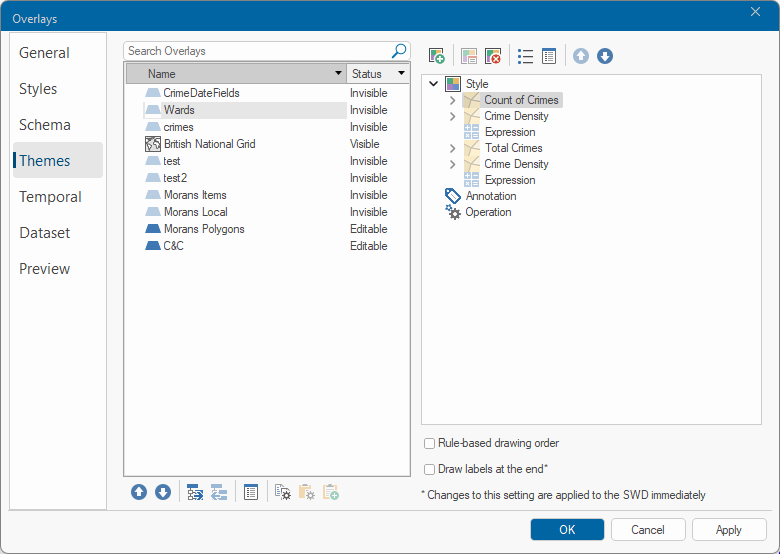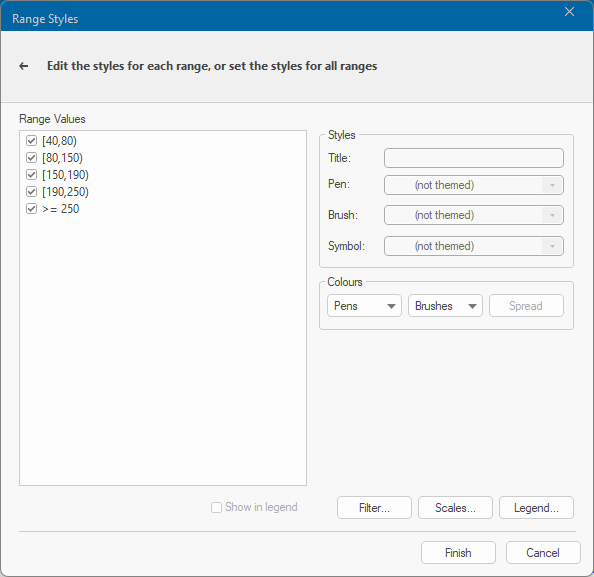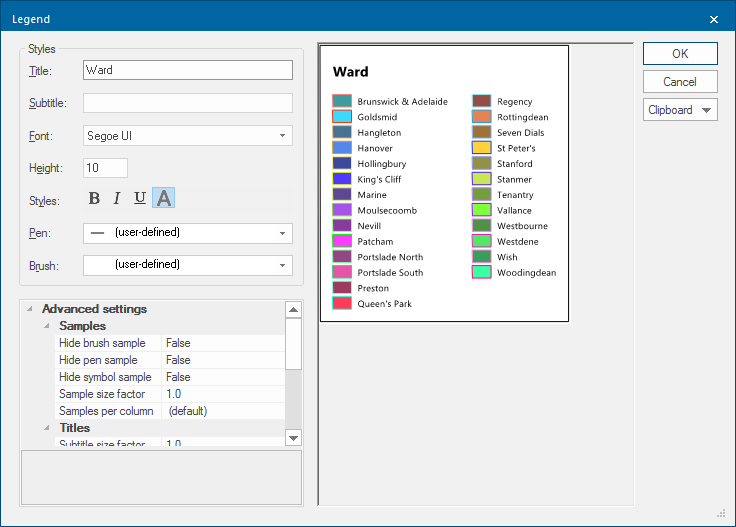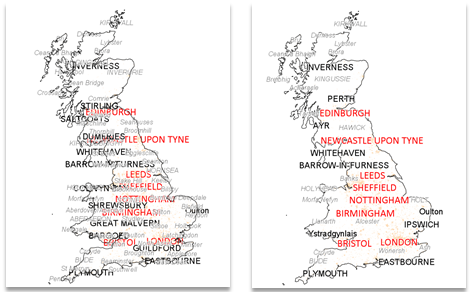Themes
A Theme controls the display, e.g. Brush, Pen, Symbol, of items depending on Item properties, and also annotates items, e.g. with Bar Charts or Pie Charts.
Add Theme 
Adds a new overlay theme. Select the required Theme and click Next.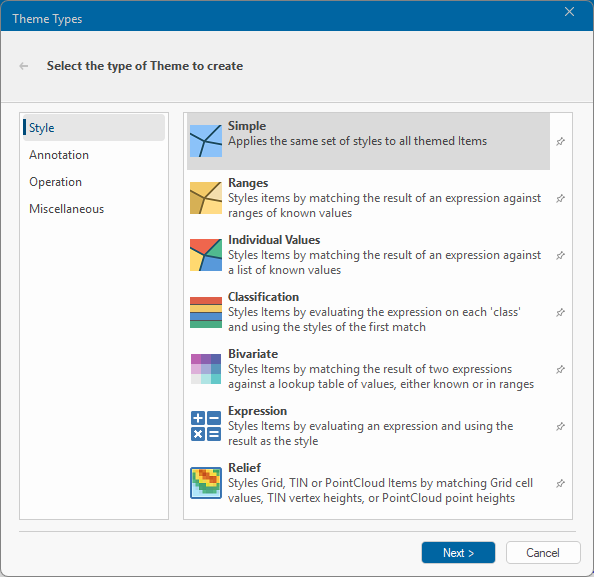
Note: The next dialog to be displayed will depend on the type of Theme selected. The parameter descriptions given here use examples of different theme types to illustrate their use.
For more information on Themes, see also What is Thematic Mapping?
Explode 
Explodes the selected overlay theme. Exploding an overlay theme will create a new overlay containing the annotation graphics, e.g. Bar Charts, Pie Charts, etc. of the exploded theme. Exploding the theme will remove it from the list of overlays.
Delete 
Deletes the selected theme from the list in the right-hand pane.
Legend

Click to see the Theme Legend screen.
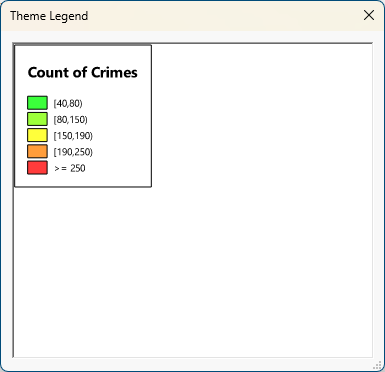
Properties 
The next dialog to be displayed depends on the Theme chosen. In the case of the Individual Values theme the Individual Value Styles dialog will be displayed to enable you to edit the settings of the theme.
a. Styles
| Title | Each value in the Theme has a title associated with it, which will be displayed in the Theme legend. The default title is the value itself. | |
| Pen/Brush | Selects the Pen/Brush that items with this value use for drawing. To view or edit the pen/brush, drop down the combo-box list, and press the right arrow at the bottom. | |
| Symbol | Selects the Symbol that items with this value will use for drawing. | |
b. Colours
Pens/Brushes/Spread buttons are enabled for a Ranges theme. Spread is enabled if a range of values are selected.
Note: See ColorBrewer for details of ColorBrewer and Creating a Theme - Ranges showing how to use ColorBrewer in the Ranges Theme.
c. Filter
Displays the Expression Builder dialog to enable a filter to be set.
d. Scales
Displays the Scale Thresholds dialog to allow you to choose the minimum and maximum scale thresholds between which the theme is displayed.
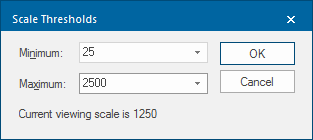
e. Legend
Displays the Theme Legend options. Unlike the Legend screen shown above, the legend styles here can be edited (eg Title, Subtitle, Font.).
Up/Down arrows (top-right of the Overlays dialog).
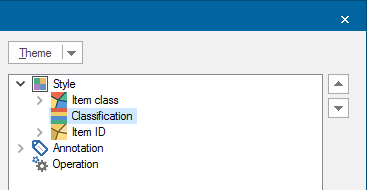
These arrows become active when the selected overlay has more than one theme and allows the theme drawing order to be set.
Rule-based Drawing Order
Draw items in the order of the rules in each style theme. Items that do not match any 'rule' will not be drawn.
Draw labels at the end
Check this tickbox if you want to defer drawing the labels until all Overlays have been drawn, thereby allowing cross-theme overlap and duplication tests, and improved map output.
In the example shown, if you have a number of overlays all with a label theme the map can become very crowded and difficult to read.
Checking the Draw labels at the end tickbox prioritises the labels in the order the overlays appear in the overlay window; this ensures the top overlay has priority over the next and so on. As you zoom into your project where there is less overlap you will see more labels.
